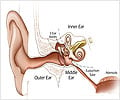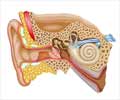General Practitioners should play a bigger role in the detection and treatment of age-related hearing loss.
General Practitioners should play a bigger role in the detection and treatment of age-related hearing loss, according to an article published in the Medical Journal of Australia.
Prof Paul Mitchell, of the Westmead Millennium Institute at the University of Sydney, and his co-authors analysed data collected between 1998 and 2000 from the Blue Mountains Hearing Study (BMHS) and between 2003 and 2008 as part of the Bettering the Evaluation and Care of Health (BEACH) study.Of people aged over 50 years in the Blue Mountains study with bilateral hearing loss, about one third reported seeking help from their GP.
“In their routine consultations with patients, GPs have opportunities to identify hearing loss and appropriately refer patients to specialists or allied health professionals,” Prof Mitchell said.
GPs responded to patient presentations for hearing loss, referring about 50 per cent of cases to specialists or allied health professionals. But they appeared to identify relatively few cases of hearing loss opportunistically.
A number of factors may contribute to low rates of GP involvement in detecting and managing age-related hearing loss, including time constraints, inadequate remuneration, lack of awareness of simple tools to identify hearing loss, or lack of knowledge of the benefits of hearing rehabilitation.
Prof Mitchell said internet-based education programs could be used to educate GPs about the importance of early identification of age-related hearing loss.
Advertisement
“Diminished ability to hear and communicate is frustrating and affects both the individual and other people in his or her environment.
The Medical Journal of Australia is a publication of the Australian Medical Association.
Source-MJA
SRM









